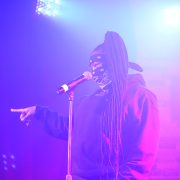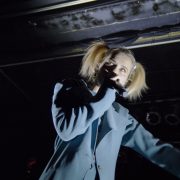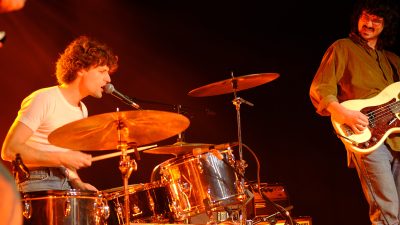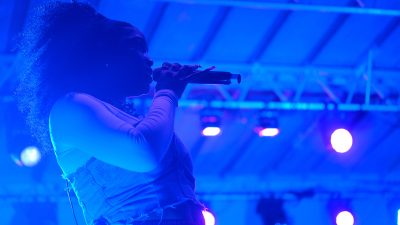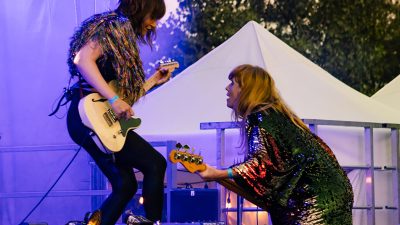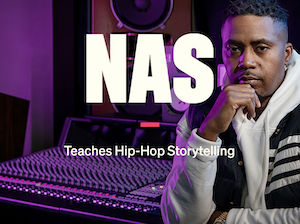DMX returns to NYC for a live anniversary show
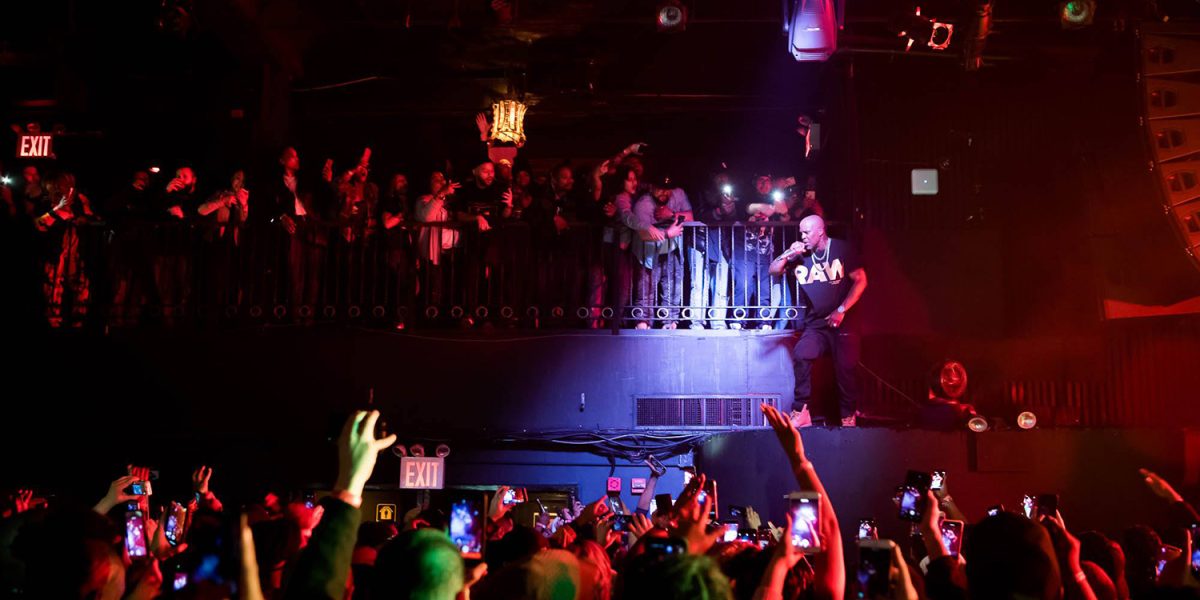
by Jake Goldbas
As a white suburban Millennial of 31 years young, I had a ton of DMX on my WinMix mp3 player in high school – my sisters stole it from Napster, and the like. “Ruff Ryders Anthem,” “Party Up,” and, “What’s My Name?” were the tracks I remember most. “Party Up,” always reminds me of my mother, because I made her lose her mind, go “all out” yelling at me when I had the music playing too loud.
20 years later, “Party Up” is still an awesome song. It uses a one to six chord progression as a way to put two chords under the same melody. DMX borrows from Wu-Tang Clan here, and not just in the glass break in the middle of the song: the entire song is braggadocio and boasts about how great he is. No one would take it seriously, lest they miss out on the fun of the track. In other words, it’s a gangster rap song with the trick that the violence in the song is sleight-of-hand. The song gives itself away in the first 30 seconds, when DMX says, “Whoo!” It’s not a grinding song so much as a dance song. Do whatever.
Could you imagine Lil Peep, or 6ix9ine, or Xxxtentacion making a track like this? 6ix9ine was always trying to prove his credentials, either by screaming or saying that he would kill someone. Then in the news, he would actually do it, which is problematic. Compare “What’s My Name?” to 6ix9ine’s “FEFE,” where the younger rapper is removed from the song because he wants to prove himself. 6ix9ine says, “I don’t want no friends,” like he’s scared of losing them. It’s the same lyric rapped that much worse. DMX sings, “I have no friends,” and it doesn’t sound like a loser complaining, so much as an individual declaring his self.
More importantly, DMX’s hooks and choruses are chants. They’re mantras when performed live and this anniversary concert was a great example of that. Take his hit, “X Gon Give It To You,” the concert hall lit up for the chorus and picked up every answer to the call:
DMX: First we gonna–
Audience: –Rock!
DMX: Then we gonna—
Audience: –Roll!
The chant is part of why rap is so inspirational. It’s not the verse where DMX talks about holding his junk, it’s the chorus when he says “Stop, drop, shut ‘em down, open up shop,” like the “Ruff Ryders Anthem,” or “Gotta live my life, like there’s one more move to make,” in “One More Road to Cross.” When the character Michael Bolton from the movie “Office Space,” listens to gangster rap in the car on his way to work, he’s on his way to do battle. It’s a fight to assert his individuality and be an extrovert in a world that wants him to submit to monotony at an office job.
As expected, DMX went on late, really late, around 12:30 that Friday. Which is generally a given for big acts in New York City. DMX busted out all of the hits to a hometown audience of people who grew up listening to him and knew all the words to every song. The concert had five opening acts: two DJs, a mime, and two rappers. Naturally, people were not big fans of the mime which prepped the audience for heavy booing when the two rappers came on and bombed their sets mostly because of the audience. All five were instantly forgettable.
The music is uncomplicated and that’s the appeal. If you can get past the violence, which is never specifically explained outside of the general shots from a gun, DMX is an inspiring message, his Wu-Tang-inspired raps are about chopping down mountains and taking direct action. This is an obvious feeling of empowerment for teenagers who felt socially isolated and powerless in high school. That DMX has had a resurgence in the past few years represents a drive away from the complications of the Internet run amok, and the interminable paralyzing facts. It’s refreshing to hear simple solutions to complicated problems and shout along.
Cover image courtesy of Edwina Hay


